The Moai statues on Easter Island are widely recognized as symbols of a lost civilization.
However, the discovery of “underground Moai” during excavation projects starting in 2011 has added further layers of mystery and intrigue.
These findings provide clues about how ancient civilizations coexisted with nature and formed their spiritual beliefs.
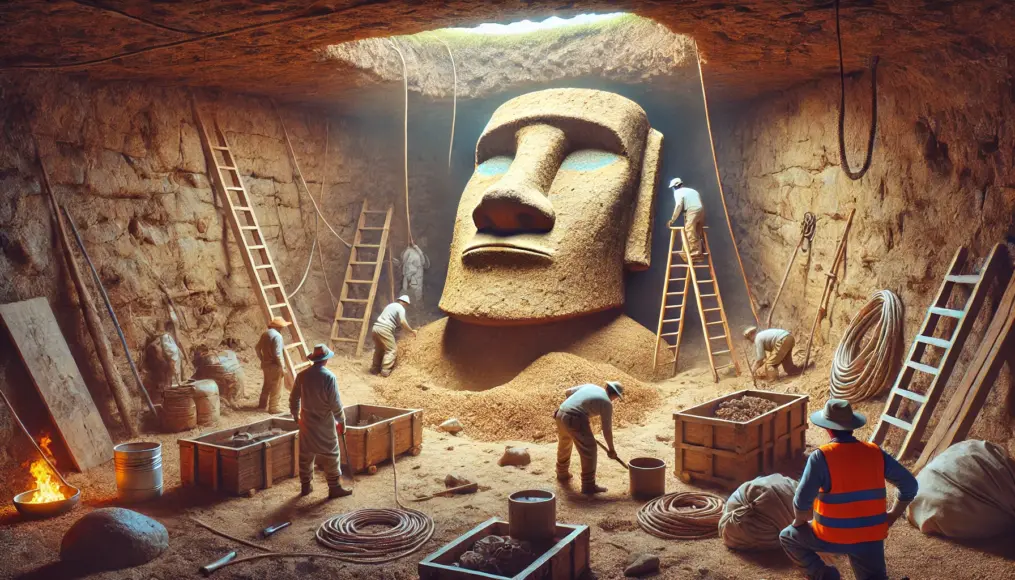
The Discovery of Underground Moai
It was long believed that the Moai statues scattered across Easter Island were confined to surface structures.
Yet, between 2011 and 2013, the “Moai Excavation Project” revealed the existence of Moai buried underground.
This discovery demonstrated that these statues were more than mere carvings—they embodied deep symbolism and spiritual significance.
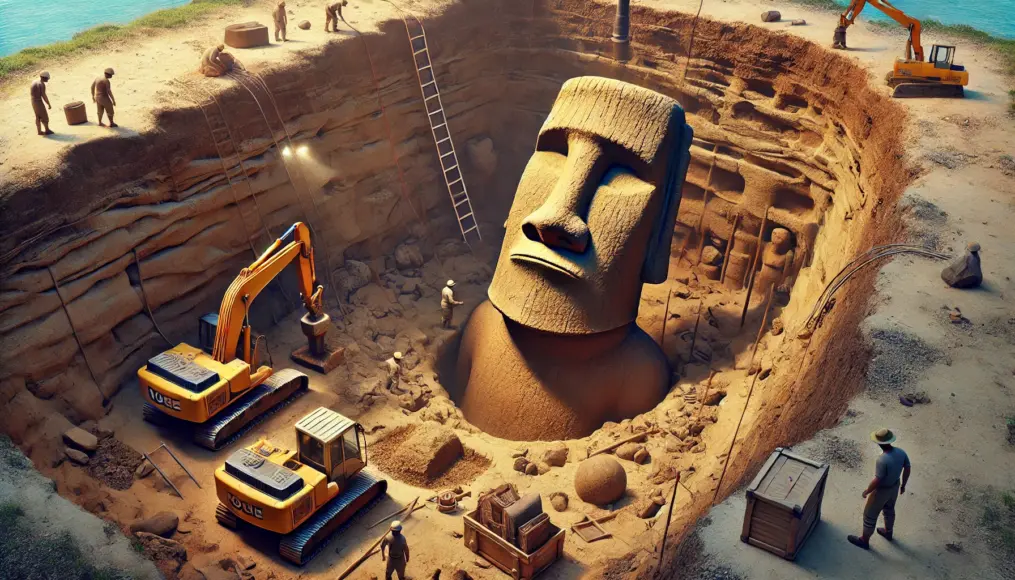
Features of the Deeply Buried Moai
The underground sections of Moai revealed intricate carvings and designs not visible above ground.
These features, estimated to have been created between 1200 and 1600 AD, reflect the artistic and spiritual sensibilities of the ancient Rapa Nui culture.
Studies suggest that these statues may have been used for astronomical observations or religious rituals.
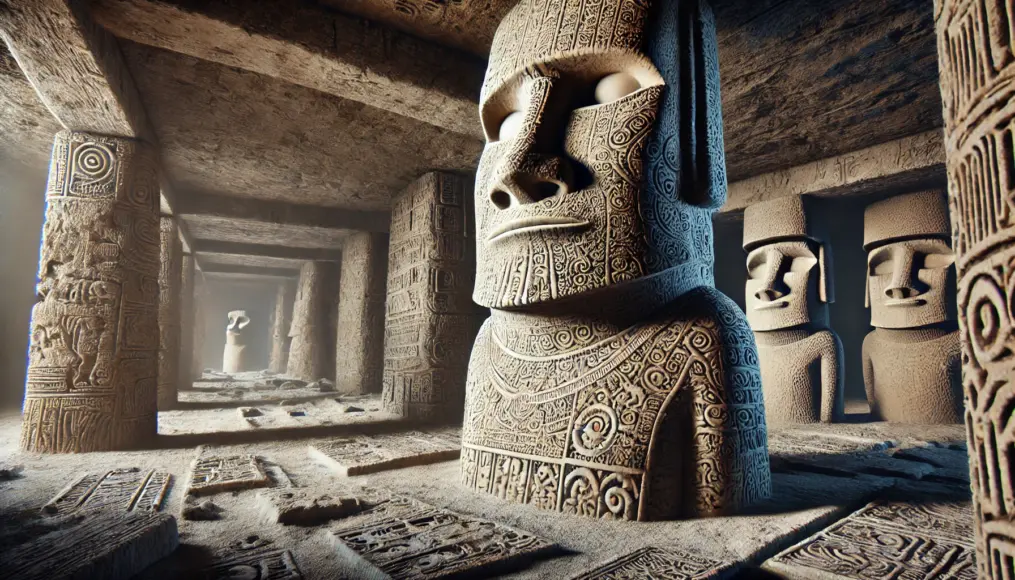
The Mystery of Moai Placement and Alignment
Moai statues are known to be arranged in specific patterns across the island.
The placement of underground Moai also appears to correlate with the island’s energy flow or astronomical observations.
These alignments suggest advanced knowledge of astronomy and geomorphology by the Rapa Nui people as early as the 13th century.
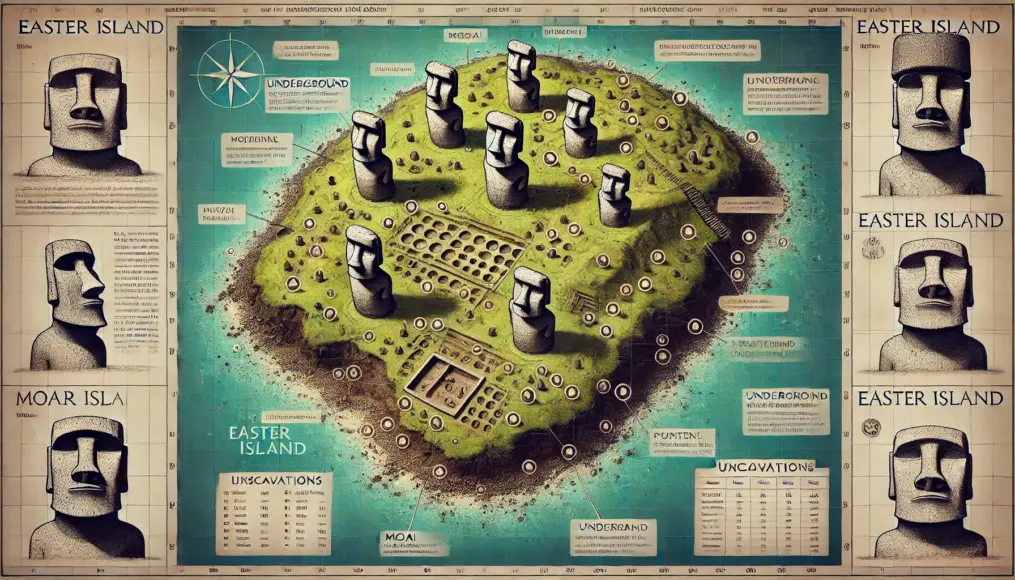
The Purpose Behind Underground Moai
Underground Moai have been revealed to be more than just stone sculptures.
Their construction likely intertwined purposes such as ancestor worship, astronomical observation, and fostering community unity.
These complex functions may have culminated in the form of underground Moai.
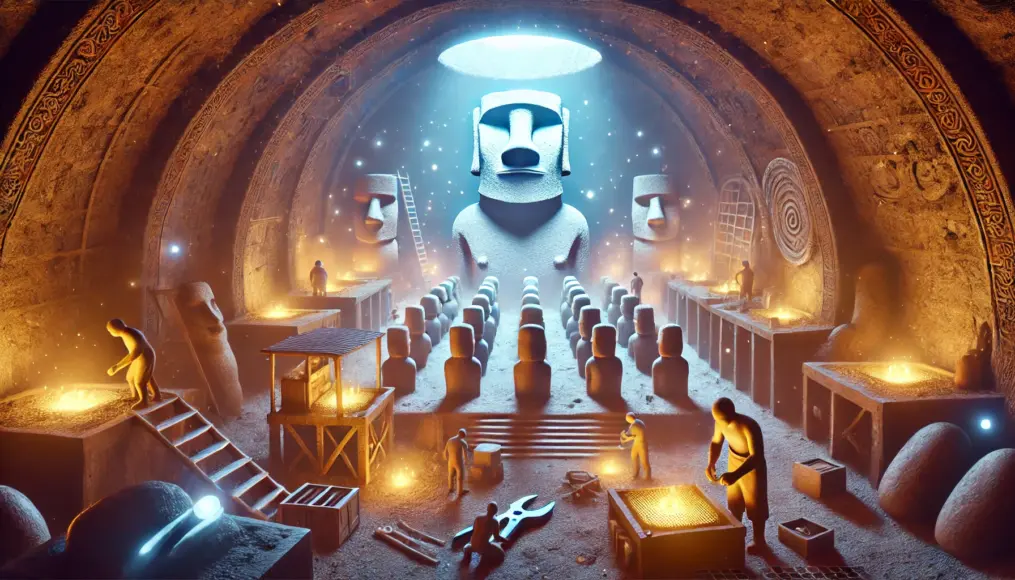
Symbols of Ancestor Worship
Moai statues are believed to represent ancestral powers, protecting villages and the entire island.
The underground Moai, in particular, may have been created for special rituals and spiritual devotion between the 13th and 15th centuries.
This places them at the core of the spiritual life of ancient Rapa Nui society.
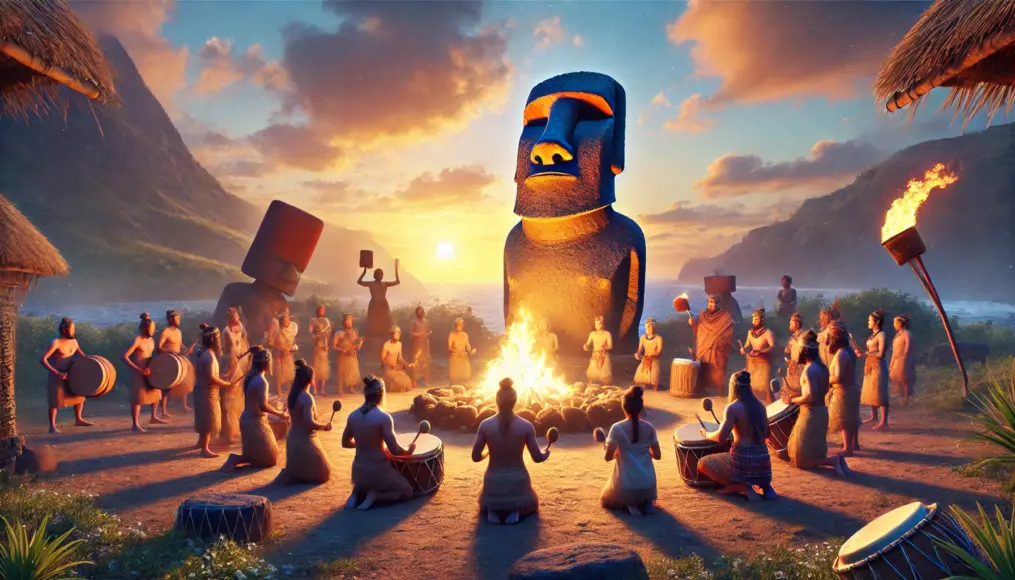
Ritual Roles and Artifact Discoveries
Many artifacts related to rituals have been unearthed around the underground Moai.
Excavations in 2013 revealed traces of fire-based ceremonies and unique stone tools, underscoring their religious significance.
Moreover, evidence suggests that the construction of underground Moai was timed with specific astronomical events.
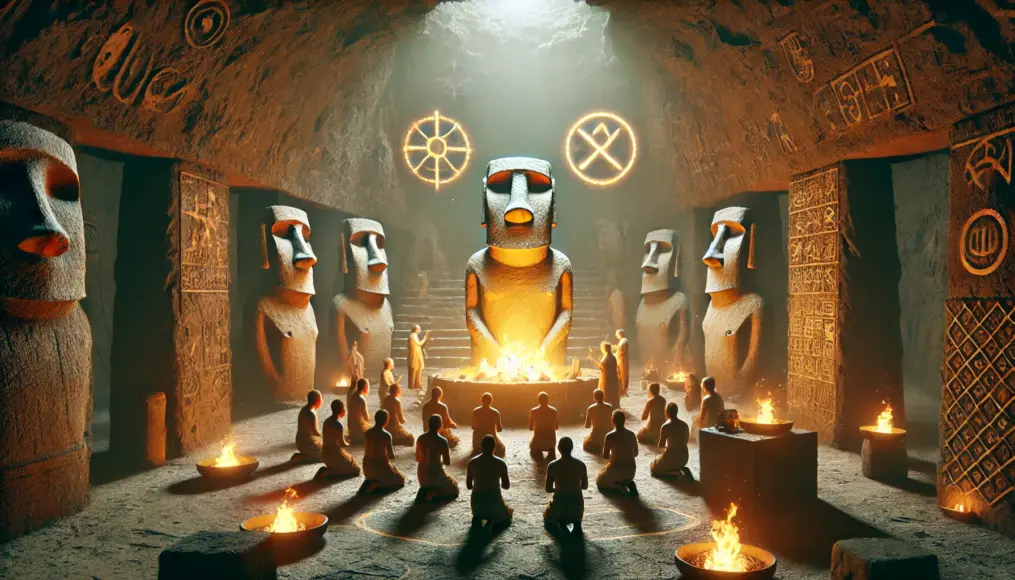
Connections to Astronomical Observations
Some researchers propose that underground Moai were used for astronomical observations.
Evidence of celestial tracking from the late 13th to 15th centuries suggests their relevance to agriculture and navigation.
This theory is supported by alignments and carvings related to celestial bodies and solar movements.
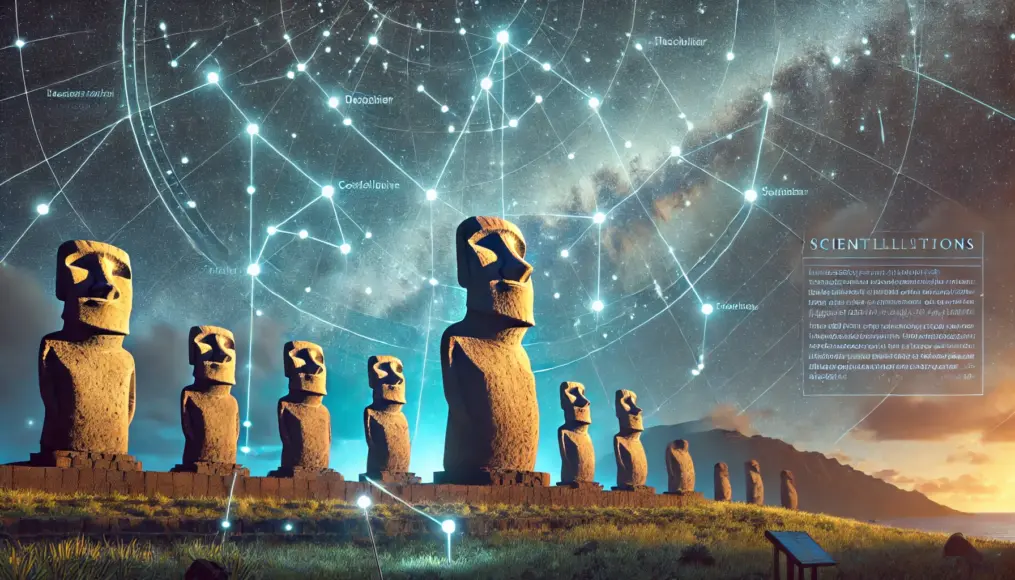
Moai’s Role in Seasonal Changes
The alignment of Moai appears to correspond with seasonal changes and celestial events.
This indicates that the underground Moai may have served as calendars or vital information sources for ancient societies.
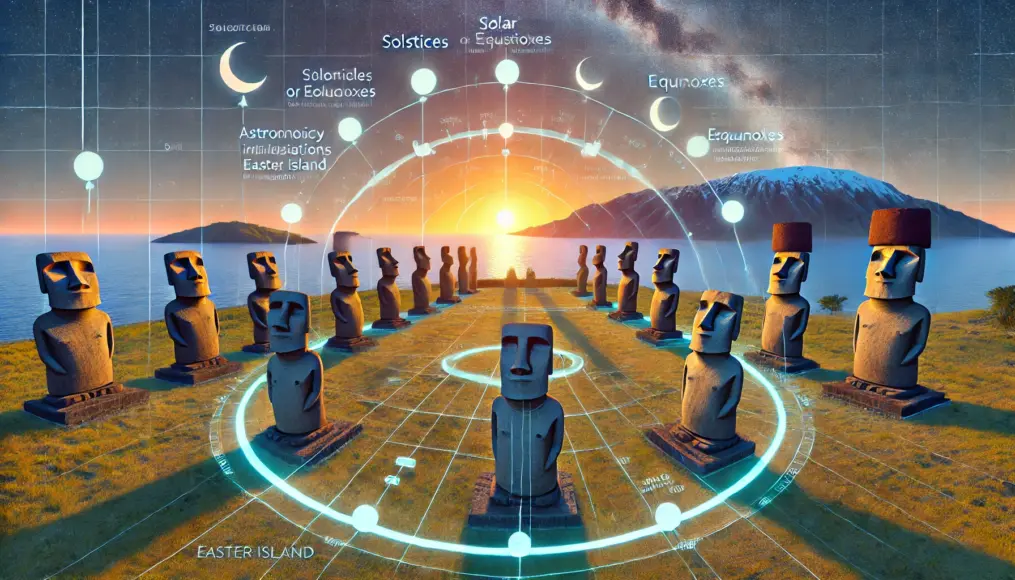
Ancient Technology Behind Underground Moai
The construction of underground Moai involved advanced technologies, including massive stone quarrying, transportation, and ground reinforcement.
These techniques remain astonishing even by modern scientific standards.
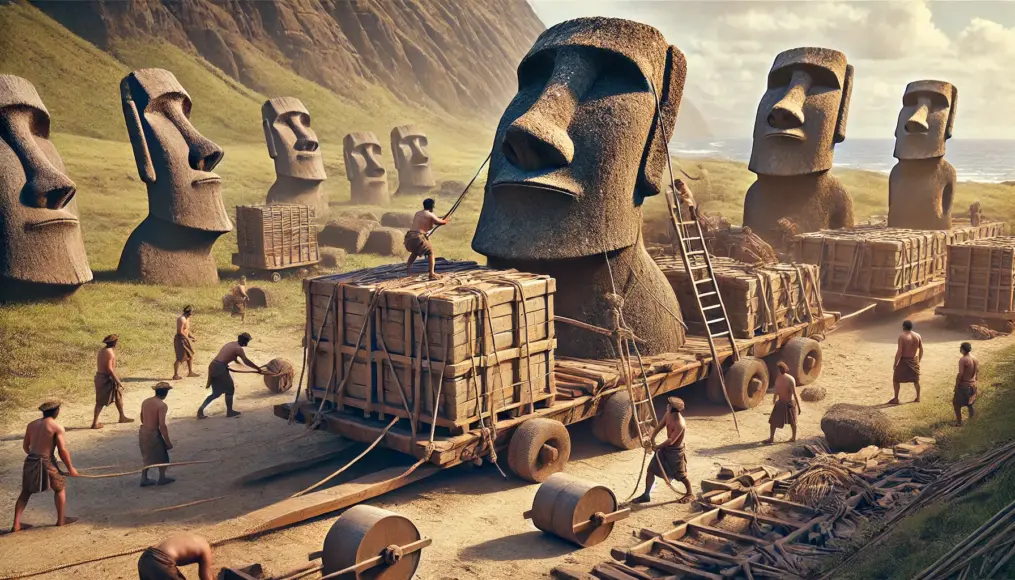
The Mystery of Megalith Transport
Despite their immense weight, Moai statues were transported over long distances.
This feat, achieved between the 13th and 14th centuries, likely involved ropes and wooden supports.
Modern experiments have shown this method to be feasible.
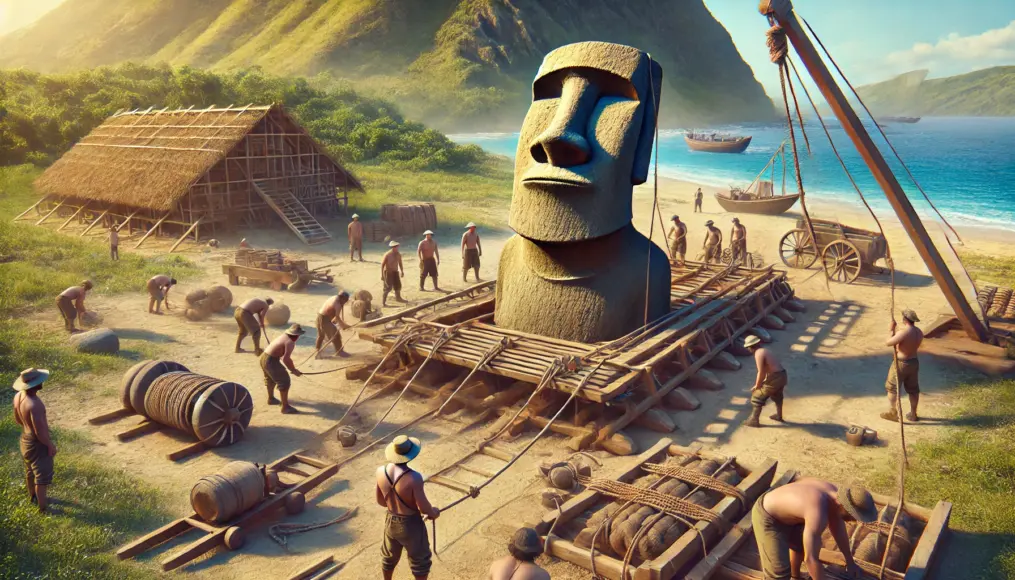
Ground Reinforcement Techniques and Stability
The enduring stability of underground Moai over centuries suggests the use of specialized ground reinforcement techniques.
These methods have preserved the statues from collapsing over time.
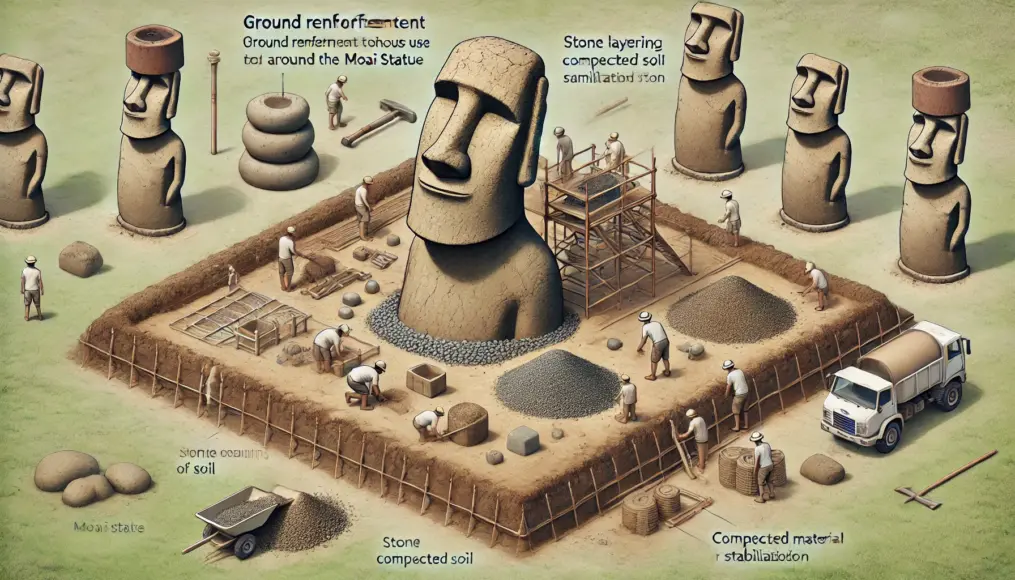
Conclusion: Insights from Underground Moai
The discovery of underground Moai prompts a reevaluation of ancient wisdom and technology.
Their significance lies in showcasing how past societies perceived nature, the universe, and their own existence.
Unraveling the mysteries of underground Moai may offer guidance for humanity’s future.
We’d love to hear your thoughts and insights on the underground Moai of Easter Island in the comments section below!

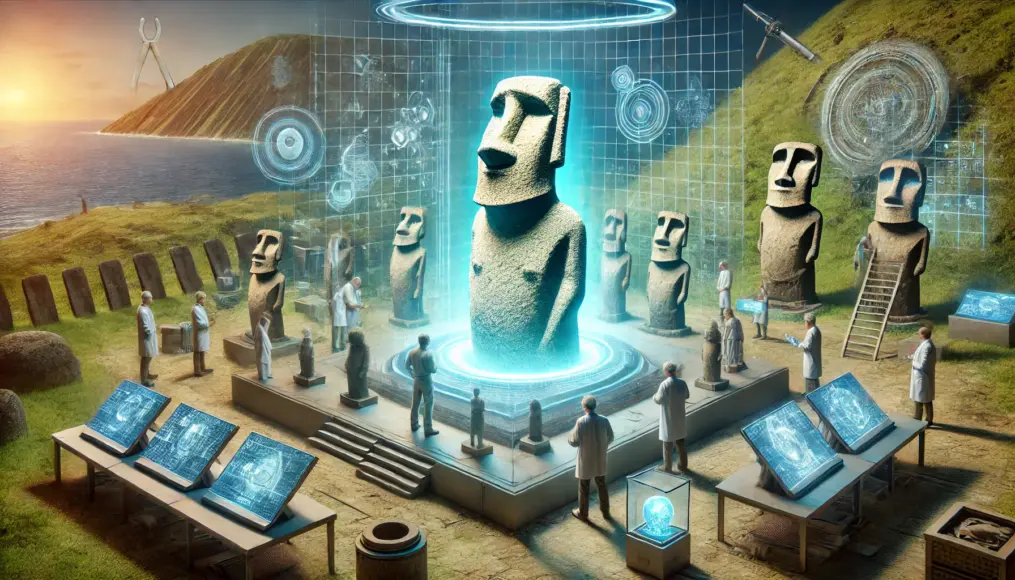
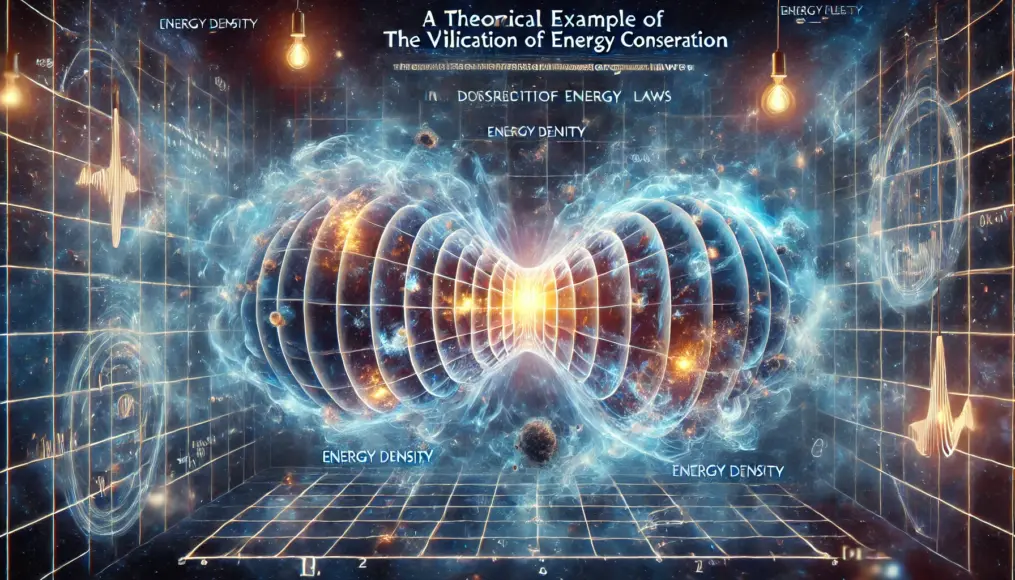
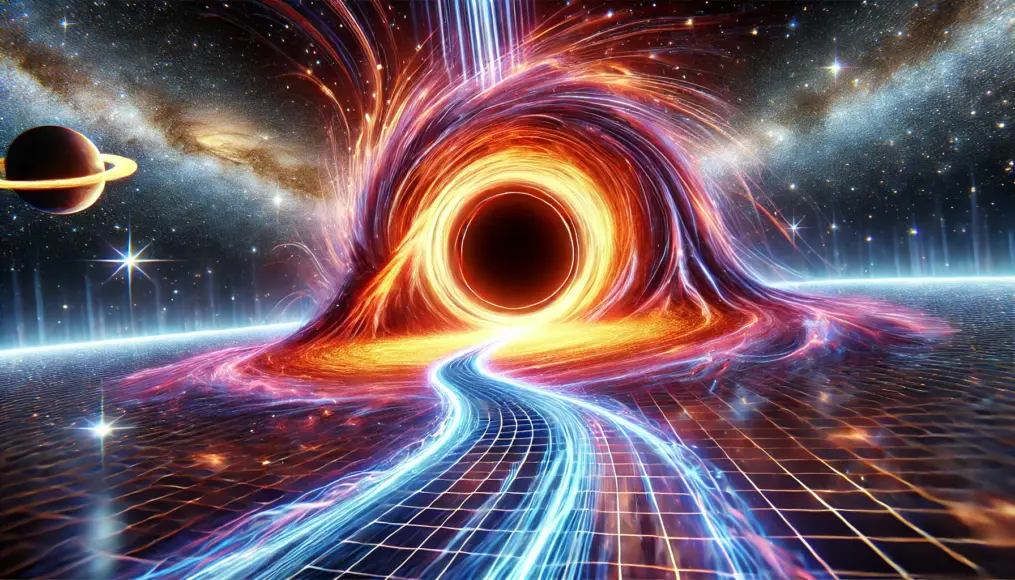
Comment